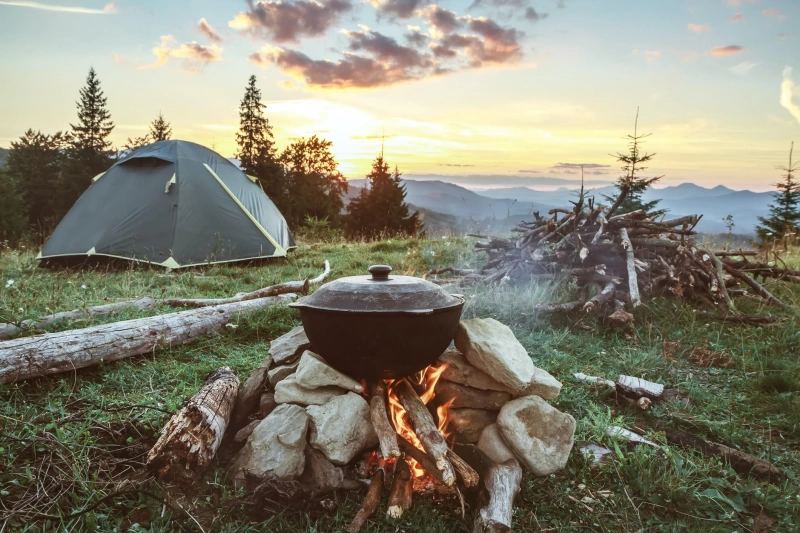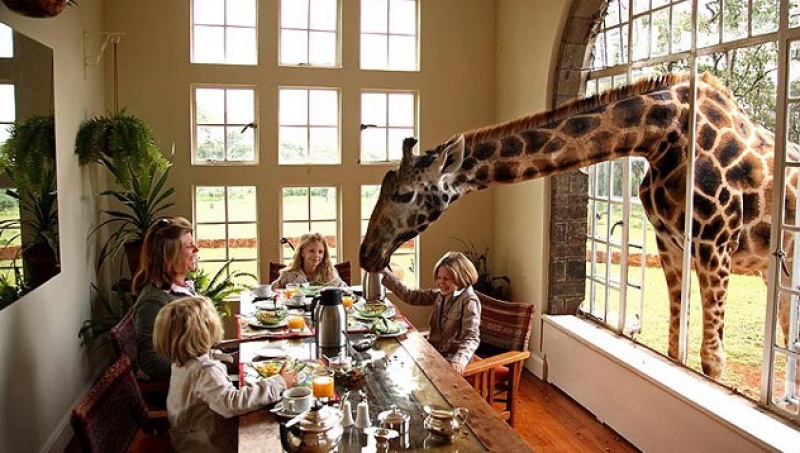
How to book sustainable accommodation while travelling- Ngtraveller
More and more travelers are aware of the negative impact of their travels. From carbon dioxide emissions and mismanagement of resources to exploitation and pollution - our vacations can be a burden on local communities and the planet.
Of course, tourism is also an important source of income and can teach us a lot about the world. But for that to happen, it must be done correctly. Sustainable travel means making better decisions and practicing responsible tourism. Cut back on flights, support local businesses, and choose greener options for where we sleep, what we eat, and what we do.
To help you book sustainable accommodation while traveling, we have listed different types of accommodation, from the least to the greenest, and provide you with tips to reduce the negative impact of your stay. So you can enjoy a vacation that benefits everyone, not just yourself.
Hotels
Between the use of laundry, food, and electricity, it's no wonder that most hotels have a large carbon footprint.
On average, hotels produce between 5 and 15 tons of CO2 per year per room, depending on the location and level of luxury of the hotel. That's a lot!
You can fulfill your role as a guest by taking a shorter shower, refusing to change towels and bedding, and doing frequent cleaning during your stay. Also, turn off the air conditioning or heating when you are out of the room and do not leave appliances plugged in once they are charged.
The big hotel chain has more problems than the environment. For example, they often buy valuable real estate, prompting local communities to abandon their homes. For example, in Hawaii, where hotels and seaside resorts claim that public beaches were once privately owned, restricting Native Hawaiian access to these spaces.
Also Read: 5 Places to Stay in Kaziranga National Park- Ngtraveller
These hotels generally only hire locals for low-paying positions and bring in foreigners to run the place. So most of the money you spend here ends up with the hotel owner, with very little money reaching the local community.
The best option is to book a locally owned independent hotel. This way, you can ensure that your hard-earned money stays in the local community and directly benefits the people who live there. You will also have a more realistic and unique experience. To further support these small businesses, book with them directly so they can avoid third-party fees.
Resorts
Resorts are notorious for the excessive use of resources. After all, people come to them to live generously. Therefore, to make guests as comfortable as possible, large amounts of water and electricity are used, food is wasted, and garbage is produced.
All-inclusive resorts are especially bad. Low prices always come at a cost, and in this case, workers often pay. Low wages, short-term contracts, low tips, and unpaid overtime are common at budget and all-inclusive resorts. Since guests are encouraged to book everything in advance, they are less likely to spend money on a small local business, so money rarely flows to the local community. Almost time spent away from the resort severely limits the cross-cultural learning experience that travel can facilitate.
But there is another option. Eco-resorts and eco-lodges are found throughout the world. These are often found in remote and less touristy locations, reducing pressure on the local ecosystem and population. Reduce carbon emissions and conserve resources. These eco resorts offer you a luxurious experience while being connected with nature.
Like hotels, resorts can be subject to a green wash, so do your research and don't fall for buzzwords like "green travel" and "ecotourism." Instead, opt for truly sustainable boutique resorts. Check out regenerative spas for some options. These places aim to be environmentally friendly and actively restore the environment and support local communities.
Guesthouses
Locally owned guesthouses are a great alternative to hotels. It is usually run by locals and has deep roots in the community. The typical Bed & Breakfast owned by an elderly couple is an excellent example of this.
And not all guesthouses are old and dusty. A lot has passed with the times and they offer beautiful boutique accommodations.
Guesthouses and B & Bs allow for cultural exchange and a feeling of home comfort. The personal touch makes your stay even more special, and you can see exactly where your money is going. Small scale also makes it easier for them to reduce waste and implement sustainable policies that work for them. Sometimes when you are staying with a homestay the host may offer to prepare local dishes and can also show you around.
Also Read: Best Pet Friendly Hotels in India- Ngtraveller
Of course, the same sustainable strategies for guests apply here as well. So do your part to help make your stay as environmentally friendly as possible.
Hostels
In general, backpackers are some of the most sustainable travelers. They are more likely to support local businesses, connect with local residents, and have more money left in the local economy.
The hostel is not just an inexpensive option; It is also good for environmentally conscious travelers. Resources are shared and used sparingly. Community kitchens reduce food waste and the proportion of washing is much lower.
Also Read: Best Resorts in the Maldives for Couples for Unadulterated Relaxation- Ngtraveller
As with hotels, some hostels are more sustainable than others. Therefore, you should look for the same factors and avoid the big chains here. And of course, reduce your carbon footprint during your stay by being a responsible guest.
Camping
What could be more environmentally conscious than sleeping under the stars? Camping, when done right, is an excellent sustainable travel option. After all, you are not staying in a building with amenities.
The main thing to keep in mind here is that you live in the middle of nature. Respecting the ecosystem you are in is of the utmost importance, especially if you are camping in the wild.
Don't just camp anywhere, keep an eye on fire safety, don't build bonfires in dry areas, be careful when introducing non-native species, leave wildlife alone, store your food properly, buy or rent used equipment.
Also Read: Resorts in Alappuzha to Enjoy a Wonderful Stay- Ngtraveller
Some camps are designated as "nature camps". These usually have recycling, composting, etc., and provide very little electricity. But again, the point is to connect with nature while still going to the bathroom.
If you don't feel bad, some advice might be the best for you. Typically, this modern "charming camping" design offers tents furnished with hotel amenities while still allowing for that sense of adventure and freedom. Also look for glamping sites with clear sustainable policies.
Homestay
From an environmental and social point of view, homestay is the most sustainable accommodation option for travelers. He resides in the home of a person or family and participates in their lives. Imagine staying with your relatives, but on the other side of the world.
The family stay offers a great opportunity for cultural exchange and a unique experience. You are also directly supporting a local family.
In terms of sustainability practices within the home, these depend entirely on what is available to them. Host families are often found in remote areas and developing countries, where people's habits tend to be more sustainable out of necessity. As a result, resources are used sparingly and nothing is wasted.
Summary
Being a sustainable traveler doesn't have to mean being tough. There are many eco-friendly options that provide a relaxing vacation without the negative impact. Booking the right type of accommodation and being a responsible guest is a great start to making your trip more environmentally friendly. Helping all of us to enjoy our beautiful planet.














